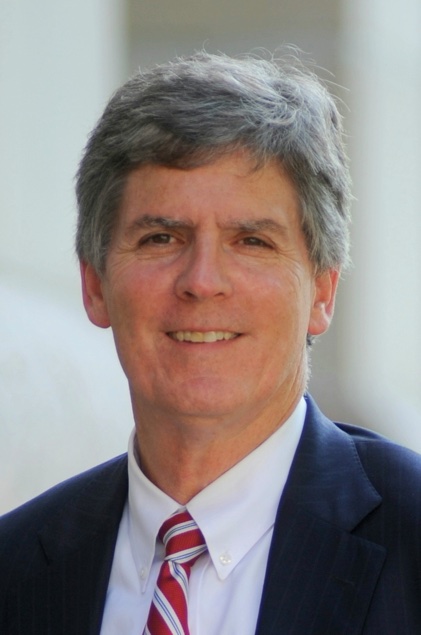
|
US Vote SmartHome » 2020-03-03 Republican primary » Texas » Court of Criminal Appeals Justice Place 3 » Bert Richardson |
| Bert Richardson | |
|---|---|

|
|
| Party | R |
| Website | http://www.electjudgerichardson.com/ |
| Born | Fairchild AFB, Washington 1956 |
| Education | BYU/St. Mary's 1987 |
| Occupation | Judge TCCA |
| Religion | LDS |
| Marital | Married |
| Children | 1 |
Bert Richardson
Robert C. “Bert” Richardson serves as a Judge (Place 3) on the Texas Court of Criminal Appeals. He is the son of the late Lt. Col. Marlin Richardson (USAF) who was a career fighter pilot and Veteran of 160 missions in the Vietnam War. His mother, NanEtte Richardson, is the owner of NanEtte Richardson Fine Art in San Antonio, Texas. His brother recently retired from his 23rd deployment to the Middle East as a member of the USAF Special Ops. After his family lived overseas and across the country, his father retired in San Antonio. He graduated from high school in San Antonio, received his B.S. degree from Brigham Young University, and his J.D. Degree from St. Mary’s University School of Law. He worked his way through undergraduate and law school as a photographer, employee of Southwest Airlines, and an intern in the Bexar County DA’s Office. Admitted to the State Bar of Texas in 1988, Judge Richardson has over 30 years of trial experience as a lawyer and judge. He became Board Certified in Criminal Law in 5 years. He is fluent in Spanish, which he was able to use while presiding in courts across the State. He was named a Distinguished Law Graduate of St. Mary’s University School of Law in 2015. From 1988 to 1999 he served as an Assistant District Attorney in Bexar County and an Assistant United States Attorney for the Western District of Texas. He has written and been involved in hundreds of appellate and writ cases while working at the Court of Criminal Appeals and as both a State and Federal prosecutor, including 8 actual innocence cases. He also has an extensive experience in over 50 death penalty cases both at the trial and appellate level. In addition to his trial experience as a judge and prosecutor, he has successfully participated (pro bono) in 2 international cases requiring a foreign country to place one of their own citizens on their Olympic team after refusing to provide her a place on the team, even though she had met the Olympic standard. He was appointed to the 379th District Court by Governor George Bush in 1999 and served in that position until 2009. As a Senior Visiting Judge from 2009-2014, he presided over a wide variety of civil and criminal matters throughout three Judicial Regions, including capital trials, writs ordered by the Texas Court of Criminal Appeals and many other high-profile cases. He was elected to the Texas Court of Criminal Appeals in 2014. He currently serves as the Court Liaison to the State Bar of Texas. Judge Richardson taught law-related classes at San Antonio College for several years and was an Adjunct Professor of Trial Advocacy at St. Mary’s University School of Law for over 10 years. He is a frequent speaker at State Bar CLE confrences across the State. He has also served as a private judge and mediator. Judge Richardson has been married for 35 years. His wife is a retired teacher and school and city employee benefits administrator, and their son is a graduate of Texas Tech University and a Bexar County Probation Officer. An avid photographer, Richardson was an assistant photo editor of his college yearbook and is currently a contributing photographer to several national and regional publications and websites. He runs and bikes on a regular basis. He is also actively involved in his church and local community, and served a two year volunteer misson for his church in Argentina. .
MCTP Rating of: 66 High Score Source 
Submitted by john wertz on 2020-02-09 14:59:55
Pros
• Many years of honorable judicial experience.
• 30 years of trial experience as a lawyer and judge.
• Board Certified in Criminal Law
• Eminently qualified, and has written/been involved in hundreds of appellate and writ cases while working at the Court of Criminal Appeals and as both a State & Federal prosecutor
• Senior Visiting Judge from 2009-2014, presiding over a wide variety of civil and criminal matters throughout three Judicial Regions, including capital trials, writs ordered by the Texas Court of Criminal Appeals and many other high-profile cases.
• Currently serves as the Court Liaison to the State Bar of Texas
• Actively involved in his church(LDS) and local community, and served a two year volunteer mission for his church in Argentina
- Endorsed by: Texas Homeschool Coalition; Texas Aliance for Life; United Republicans of... More
Campaign Finance Reports..... Source 
Submitted by john wertz on 2020-02-09 14:59:39
2019 2020
Jul - Dec 30 Day Report 8 Day Report
Former CCA Judge Cathy Cochran Endorsement ... Source 
Submitted by john wertz on 2020-01-06 03:02:01
Thank you again for your interest in the candidates running for the Court of Criminal Appeals (CCA) in 2020, especially the race between Judge Richardson and Gina Parker.
First, do I have a dog in the hunt? I was appointed to the CCA in 2001 by Governor Perry, and he took Supreme Court Justices Wallace Jefferson, Xavier Rodriguez, and me on a one-day flying campaign tour of Texas cities in early 2002. After winning my first election until my retirement in 2014, I had cordial, but distant, relations with the governor’s office. I had never met Judge Richardson until my retirement party in December, 2014, which was after he had won election to the CCA, but I had heard many positive comments about him throughout my tenure. He was on a national judicial-scientific committee with one judge on the CCA and was friends with another. My husband and I had lunch one time with Judge Richardson and his wife... More
2nd rebuttal (1/4/19) to Ms. Ms Parker Source 
Submitted by john wertz on 2020-01-06 02:43:47
from judge Richardson.
-----Original Message-----
From: trichardson2@satx.rr.com [mailto:trichardson2@satx.rr.com]
Sent: Saturday, January 04, 2020 2:02 PM
To: lsutigah@comcast.net
Subject: MTP
Mr. Wertz,
Thank you for the reminder below and posting my response. I suppose it's one of those thing we could debate in soundbites forever; however, when an appellate court reverses a trial court, not because they abused their discretion, but because they found a statute unconstitutional, it's a pretty good sign they are changing the law that trial courts up until that point were bound to follow. For now, I'll let my carefully written findings and opinions speak for themselves.
As a fact check on two things, I have never said she did not have any felony experience, my comparison chart simply notes she had no felony experience as a prosecutor. That information was obtained from her own LinkedIn... More
12/30/19 Rebuttal to Ms. Parker's claim ..... Source 
Submitted by john wertz on 2020-01-06 02:32:15
that Judge Richardson did not follow the rule of law in the Gov. Rick Perry case with the Austin DA.
Judge Richardson's rebuttal:
In a recent interview with the Montgomery County Tea Party my opponent made two claims that were factually incorrect regarding my ruling in Ex parte James Richard “Rick” Perry. First, she claimed that the Texas Court of Criminal Appeals (TCCA) decision was unanimous, presumably to make light of my ruling. That was false. Eight judges participated in that decision - 6 voted to grant the relief requested and two dissented. TCCA Judge Johnson in her dissent noted “the Court stretches constitution, case law, and statute beyond where I am willing to follow.” That TCCA decision reversed the unanimous decision of the Austin Court of Appeals (all Republicans) denying Gov. Perry relief in Ct 2, requiring that he go to trial, and affirming their decision to find the statute in... More
2020 Video Interview Source 
Submitted by john wertz on 2019-12-28 02:32:30


